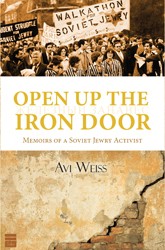On the surface, Margarita Gokun Silver’s I Named My Dog Pushkin (And Other Immigrant Tales): Notes from a Soviet girl on Becoming an American Woman is about the author’s experience of emigrating from the Soviet Union as a young woman in the late 1980s, and the burning desire her younger self felt to exorcise every trace of Russia from her identity and become American. As the essays unfold, however, it is clear that I Named My Dog Pushkin, like the author’s desire to be American, is much more complex, touching on issues like antisemitism, self-esteem, challenging parent relationships, and living authentically.
Gokun Silver writes in a casual, conversational style that may be a hit or miss with readers; the memoir’s dry humor and stream-of-consciousness-like prose has echoes of David Sedaris’ writing, but it sometimes toes the line between witty and rambling. For instance, the collection’s first essay, “Immigration Part 1 or Rules, What Rules,” has an almost frantic feeling as the author recounts the many misadventures that her parents, grandfather, and she experienced on the day they left the USSR, including the guilt her mother imposed on young Margarita for going back inside their apartment after everyone left (violating the laws of superstition and thus bringing them bad luck) and the tense moments at the airport as she smuggled her grandmother’s jewelry out of the country. The prose is suffused with exclamation points, parentheticals, asides, all-caps, and bullet points; these make for an interesting style.
The book is filled with many poignant moments. For instance, the essay “How to do Jewish Right” details the serious antisemitism the author faced as a Soviet child, her attempts to hide her Jewishness, and the disconnect she felt with American Judaism upon her immigration. This essay raises important questions about the judgment Jews face from non-Jews and — importantly — from each other, working through what it means to be Jewish in today’s America, especially for those who wonder if they are Jewish enough. The author’s antisemitism-infused youth and thirty years in America help her come to important conclusions that are relevant to any Jew today.
These moments remind readers that this is the story of an immigrant with her own journey from Soviet Russian to an assimilated American. The nature of that assimilation is covered beautifully in the book’s last chapter, in which Gokun Silver reflects on the ways in which she has failed to become the true, blue American her younger self dreamed of, but that this “failure” has led her to a more comfortable sense of identity. The clarity and sophistication of the prose shifts as the collection progresses, perhaps mirroring the maturity of the author through time, as she moves from Soviet teen desperate to shirk every aspect of her Russian identity to a middle-aged immigrant who has been in the United States for thirty years. Both versions of the author — and everything in between — are deeply relatable. Whether you are an immigrant, the descendant of immigrants, Russian-American, Jewish, a mother, a wife, or any of the other many identities that Gokun Silver tackles, this book is a quick, easy summer read that is sure to delight while tugging at your heartstrings.
Leah Grisham, PhD, is a Cleveland-based writer. Her first book, Heroic Disobedience, was published in 2023. She is currently working on a new book about the Holocaust. Catch up with her at leahshewrote.com





